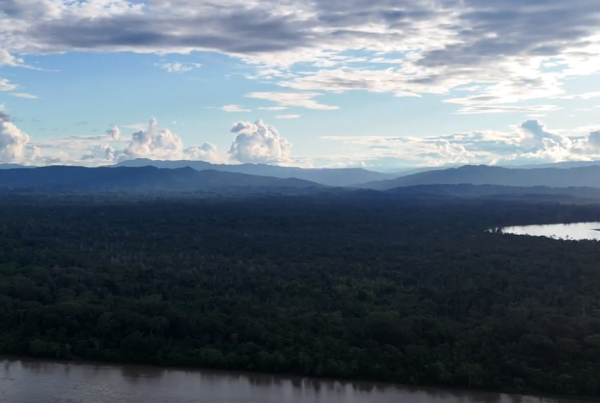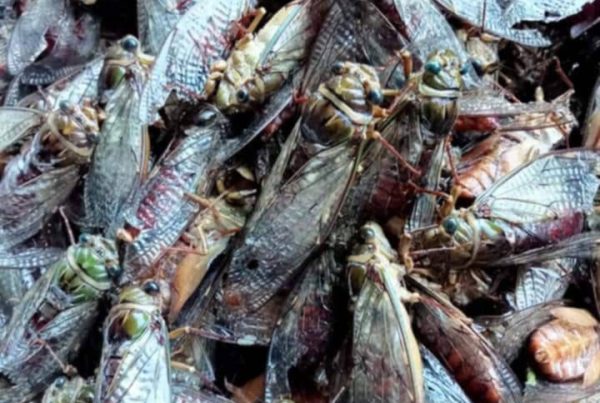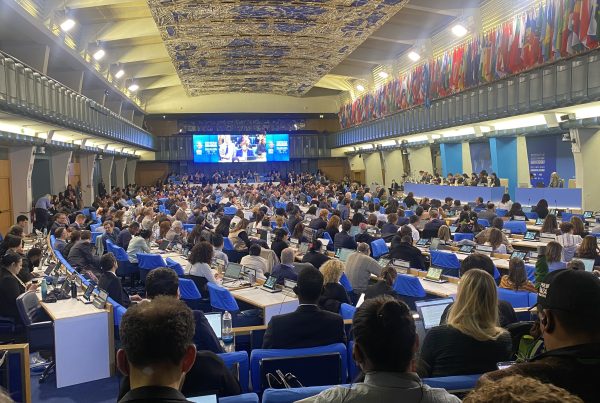Fiorella Lopez Manchari is a 37-year-old Yanesha woman who lives in Unión de la Selva, Peru. Fiorella grew up with her grandmother until the age of seven when she had to migrate to Lima to work.
“All my life I have always liked to generate my own income, that’s why I like the countryside,” says the community member.
When Fiorella’s father died, he left her the hectares of land on which she currently lives and made her the owner. It was at that time that she moved with her family from Lima to Unión de la Selva. Now she is a community member, which means contributing to the collective development of the community, doing chores, attending meeting to make decisions and supporting each other with land issues. Being an active community member gives her the support of the community leaders in case of any difficulty. It is not common for women to be community members; it is usually men who hold this position.
But that is not the only reason why the forest represents a very important space in the leader’s life. Months before her grandfather passed away, he always told Fiorella to go with him to fetch firewood. As they walked along the path, her grandfather pointed to a couple of tornillo trees (Cedrelinga Cateniformis) and told her: “these trees are for you to always remember me and your grandmother, let them grow and take care of them”. Fiorella’s grandparents had shared a lot of time with her since her childhood, she treated them as her parents. The two tornillo trees are still standing today and grow along the road where Fiorella walks every day to fetch firewood.
“For me it has always been important to preserve biodiversity in our territory, because living in a forest that has no trees is illogical because I take care of it and the forest also allows me to live, this environment helps us to stay healthy with clean air, calm, being able to work the land, cultivate and take care of the animals that inhabit these areas” says Fiorella.
As a result of climate change, the fish in the river and the animals in the bush have been reduced. Fiorella remembers that when she first moved to the land that her father inherited, she lived with her family in a small house that she built nearly in the middle of her land in a high part of the forest, and when she discarded the cassava waste after preparing mazato, animals and birds such as armadillos, zamaños, paujiles and mishos came to feed; but after indiscriminate hunting, they stopped coming. Birds used to nest in the trees on her farm, and indiscriminate fishing with poisonous barbasco has also led to the disappearance of fish in the rivers near her homes.
Type: Article
Region: The Americas
Country: Peru
Theme: Community-led conservation, Sustainable livelihoods and Traditional and local knowledge
Partner: CHIRAPAQ
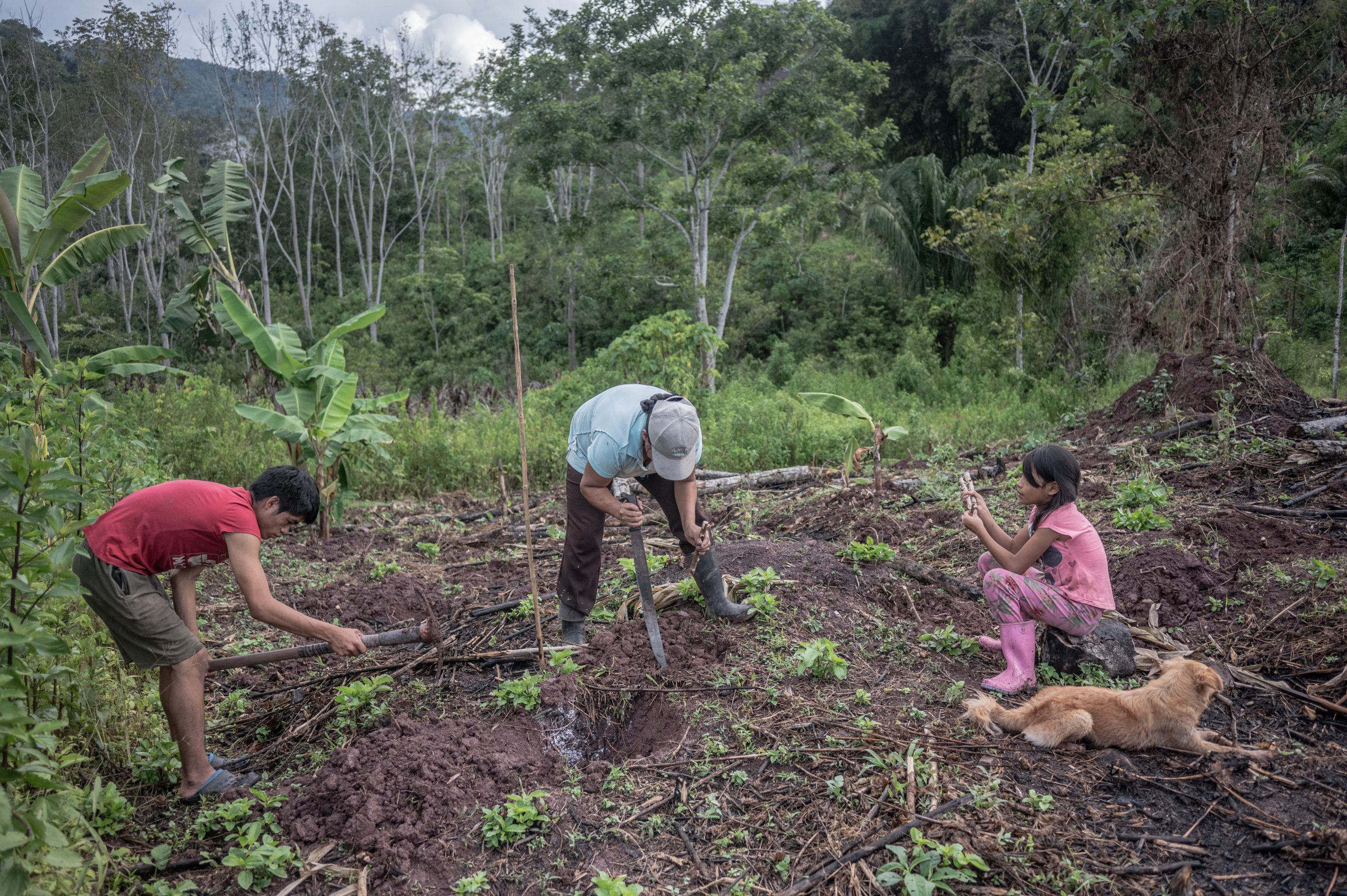
Fiorella works her farm with her children Mauricio (14) and Yuliana (9). Photo by Luisenrrique Becerra Velarde.
Fiorella has made an effort to contact the National Institute of Natural Resources (INRENA) and the National Service of Forest Flora and Fauna (SERFOR) in order to protect the natural resources that exist in Unión de la Selva. However, the community authorities themselves do not have the will to generate a debate about the importance of conserving biodiversity, nor do they offer the opportunity for interested community members to be trained in supervising the adequate use of the territory.
The community member grows coffee, cassava and bananas, but her crops do not provide her with a sufficiently profitable income to depend exclusively on this work. So three years ago she decided to start a business selling mazato.
Fiorella’s mother taught her how to prepare this drink when she was an adult after years of living in Lima. In the first two attempts she burnt it but she did not give up, and after two months she prepared it again. Fiorella did not want to reamin not knowing how to prepare a traditional drink in her community; little by little she adjusted the quantities of yucca and sweet potato to reach the balance of flavour and texture; until the moment came when the drink was just right. From there she began to prepare mazato for daily consumption until one day she said to her husband: “Why don’t we sell it?
At that time they planned to use part of their land to build a shop, they cleared out a sector near the track and managed to build a medium-sized structure that took her and her husband Julián a month; at first they had doubts about its possible success and Fiorella set herself a deadline: “if I don’t sell anything in a week I’ll give up the idea of selling mazato”.
Until one weekend she prepared mazato, cleaned the tables and started with an eight-litre bucket, a jug and a glass, and put up a sign outside her shop saying: mazato for sale. Fiorella didn’t know what her mazato would look like to the customers. The first day she only sold one jug, a week later she tried again, saved up some money and bought the ingredients.
She then sold two jugs and little by little the number of customers increased; she has now been in business for three years.
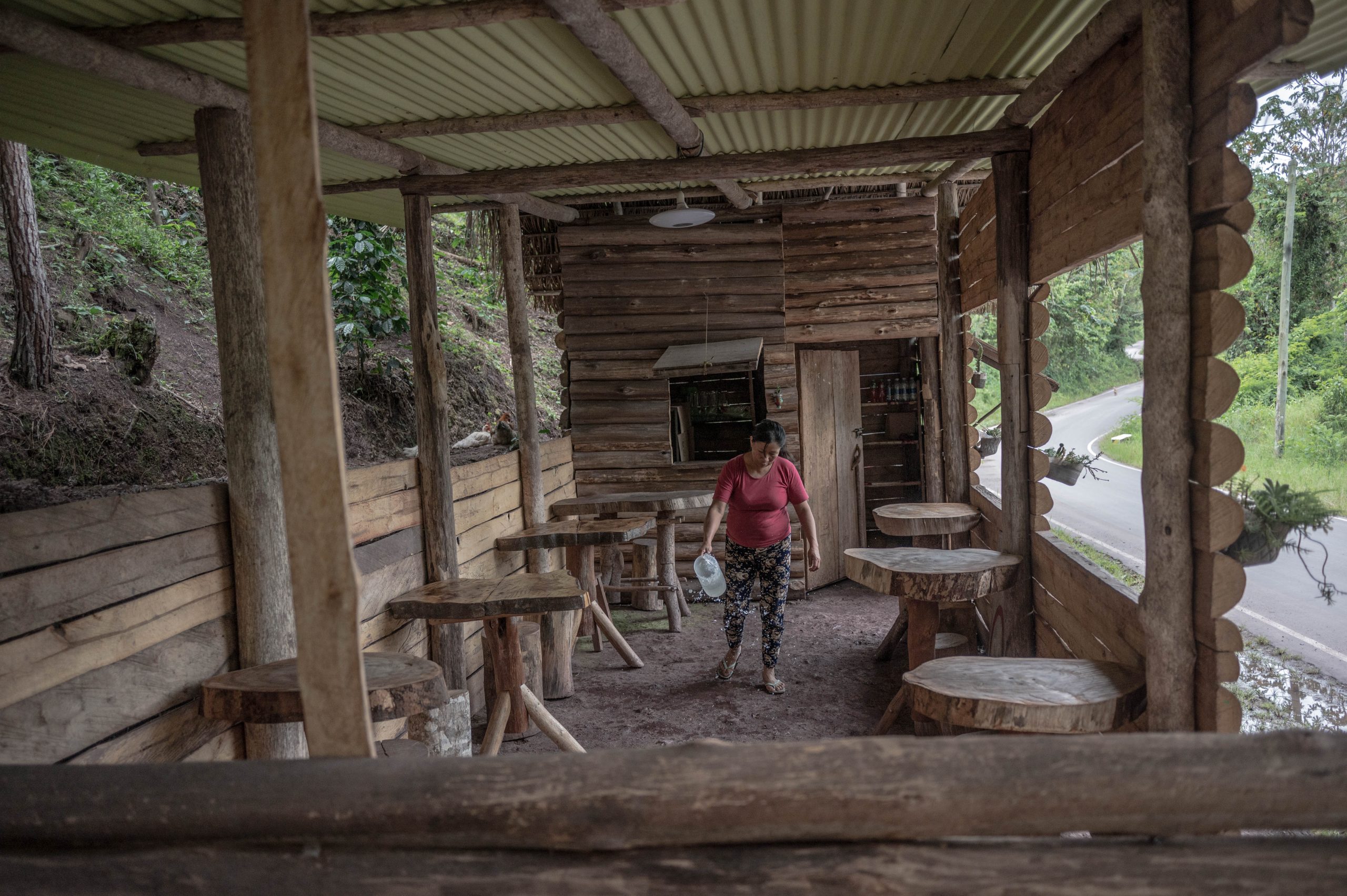
Fiorella prepares her mazato shop for the arrival of diners. Photo by Luisenrrique Becerra Velarde.
“As mothers, we will always want our children to be something more, but there is no interest from the authorities to support local development in the community; there have been some workshops on organic gardening, painting with natural dyes, but no project is sustainable. Migration for many young people is a window to access development”, explains the community member.
Ivonne Yashira is 19 years old and is the eldest daughter of Fiorella, she was born in Lima and lived in Puente Piedra – Zapallal until she was 7 years old when she moved with her family to Unión de la Selva. During secondary school Ivonne took care of her younger siblings because her mother went out to work on the farm or arrived too tired to wake up to cook. She prepared breakfast and helped get her siblings ready for school.
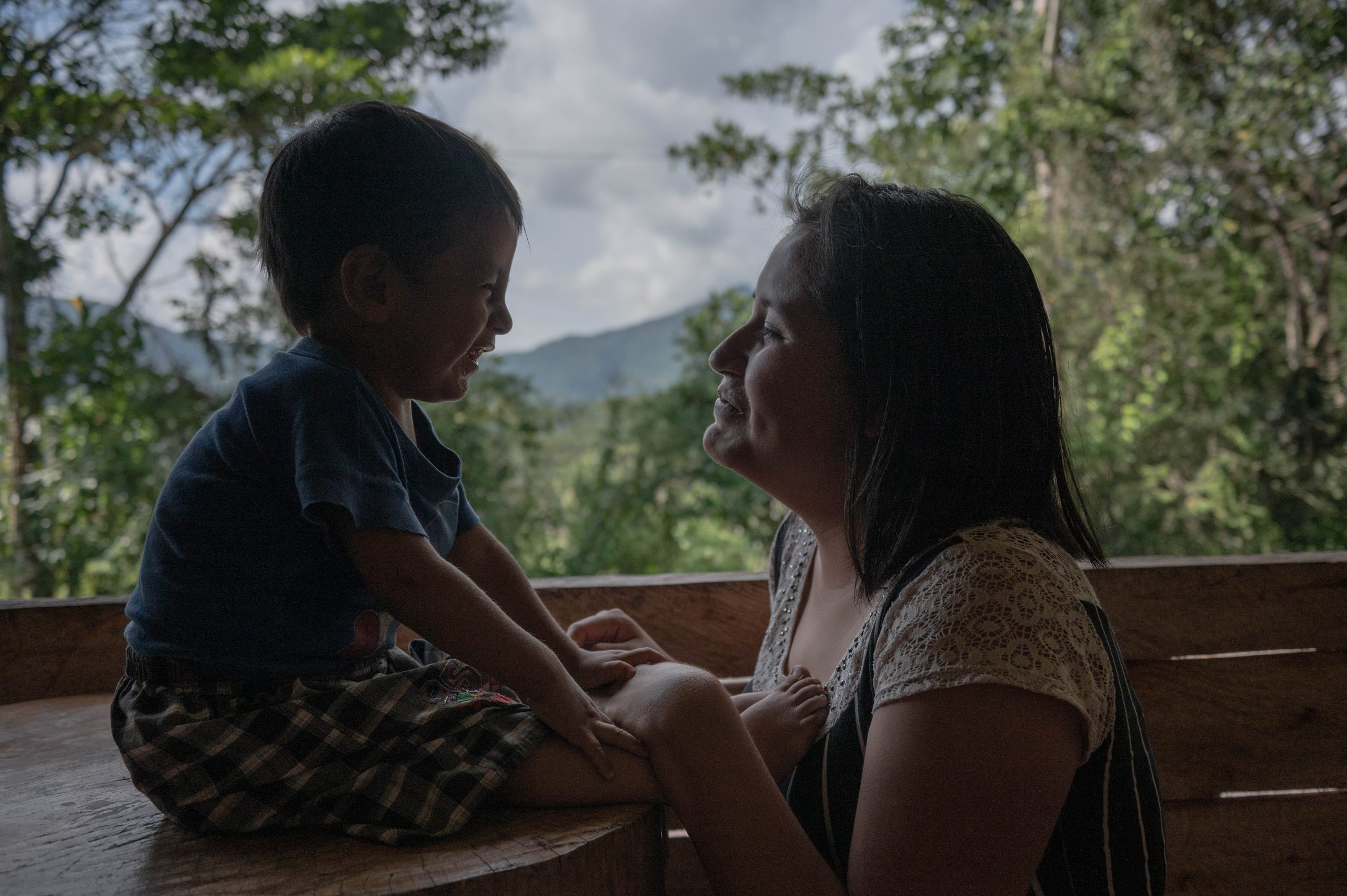
Ivonne (19) and her son Evans (4) wait for clients to arrive at the family business. Photo by Luisenrrique Becerra Velarde
When she was in the fourth year of secondary school, Ivonne realised that tourism could generate economies in the Amazon to promote local development. It would also mean she wouldn’t have to migrate or move away from her home to find work, but instead she could start a business on the land of her home. The land of her parents’ farms is surrounded by a great biodiversity that climate change is increasingly subduing – and that is precisely why she had to work on the reforestation of the place, favouring the preservation and sustainability of life in the forest.
“It is important to let others know how each being that lives on earth plays a role in nature, as we often destroy their environment; tourism can help to diversify this knowledge. Often we do not realise what we are losing in nature, in summer time a great diversity of bird species used to arrive: parrots, toucans, Andean cock-of-the-rocks. As a result of climate change and landslides, the trees where they used to live have fallen, which means the biodiversity that supported them and depended on their existence has also disappeared,” says Ivonne.
Ivonne explains that “inside the forest, instead of planting, trees are being cut down, farms are being burned and more and more insecticides are being applied to make it more fertile. What the farmers don’t know is that they are destroying the land”.
The whole family supports the cassava business led by Fiorella. In the mornings Ivone is in charge of the shop and in the afternoons her siblings take on this responsibility.
When there is a shortage of cassava and sweet potato, Fiorella contacts the vendors to receive the sacks of sweet potatoes at the door of her shop and carries them on her shoulder to her house. In the evenings the community member prepares mazato and leaves it to ferment overnight.
The mazato business is the beginning of many future projects that Ivonne has imagined. She plans to build a hotel for tourists on part of her parents’ land, and she has thought of studying for a few years in Lima and then returning to Unión de la Selva. Fiorella has shared with her children her love of nature and these feelings continue to inspire the contribution that her family wishes to make to the territory that surpasses the home they have built.
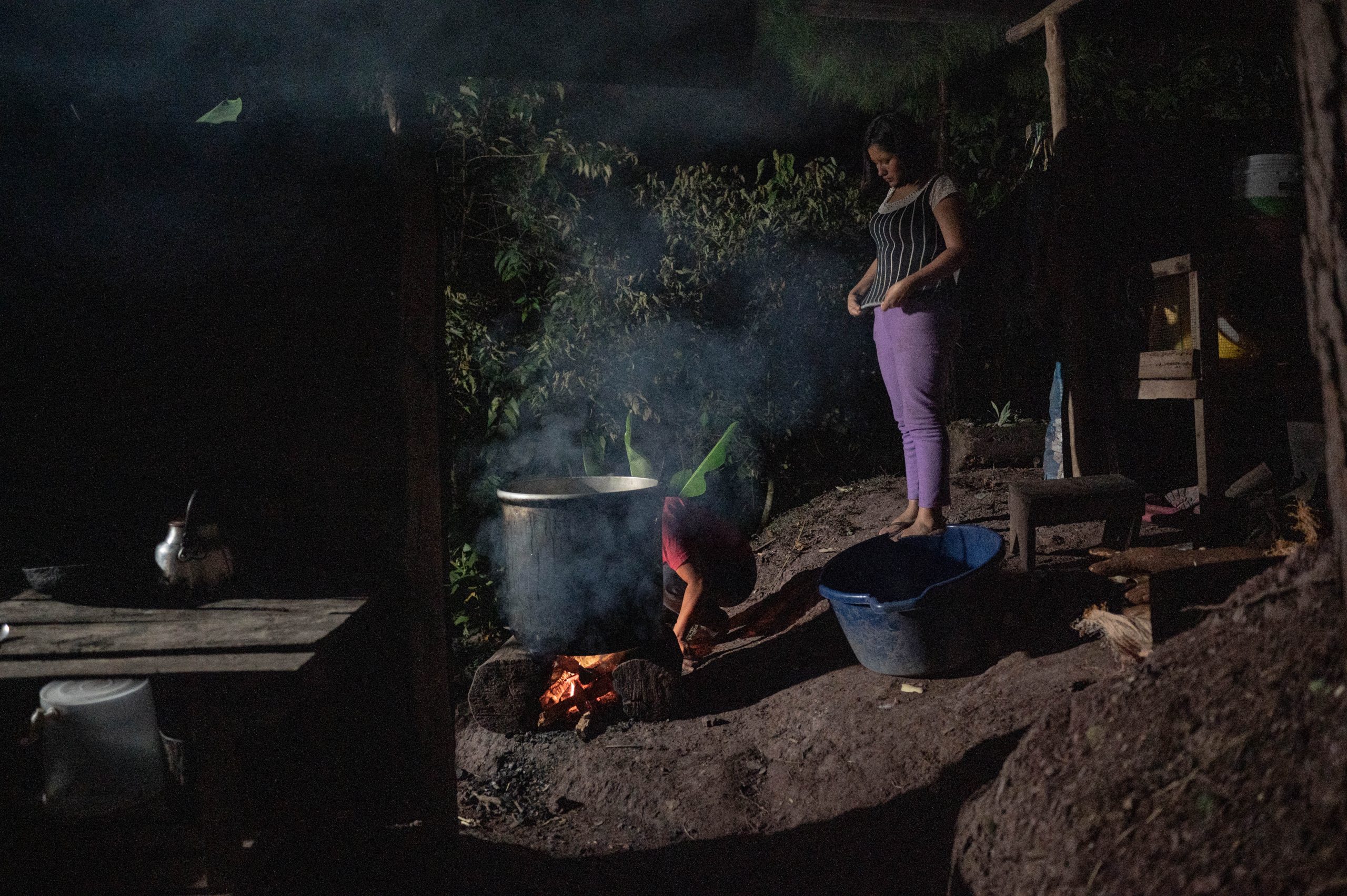
Fiorella gets the pot ready to start boiling the cassava and prepare the mazato, Ivonne accompanies her to assist her with whatever she needs. Photo by Luisenrrique Becerra Velarde
About the author:
Luisenrrique Becerra Velarde (Lima, 1993) documentary photographer; his work explores the link between human rights, migration, gender, cultural heritage, identity and territory. Visual representation as an interesting space to introduce issues into the public debate and invite dialogue through a critical representation in search of breaking stereotypes. His approach to photography is based on his training as a journalist in which subjectivity and the diffuse concept of “truth” drive his intention to construct narratives of memory that include ambiguity, contradiction and, above all, an environment that inevitably conditions us.

